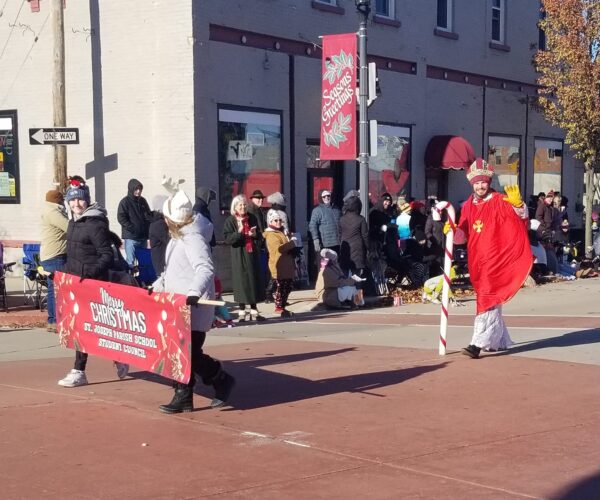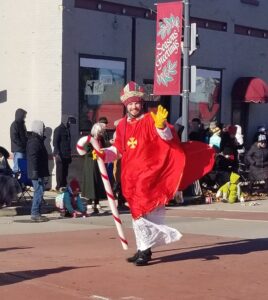"'Twas the night before Christmas, when all through the house
Not a creature was stirring, not even a mouse. ...
The stockings were hung by the chimney with care,
In hopes that St. Nicholas soon would be there."
- Clement Clarke Moore
“Children, I beseech you to correct your hearts and thoughts, so that you may be pleasing to God. Consider that although we may reckon ourselves to be righteous and frequently succeed in deceiving men, we can conceal nothing from God. Let us therefore strive to preserve the holiness of our souls and to guard the purity of our bodies with all fervor. Ye are the temple of God, says the divine Apostle Paul.”
– St. Nicholas of Myra
St. Nicholas of Myra, born traditionally on 15 March 270, hailed from the ancient city of Patara in Lycia, a province located in the southwestern part of modern-day Turkey. This region, rich in Greek heritage and nestled within the vast expanse of the Roman Empire, was a melting pot of cultures, ideas, and religious beliefs.
The city of Patara, where Nicholas was born, was a bustling seaport. It was a hub of trade and commerce, with merchants from distant lands bringing in exotic goods, stories, and philosophies. The air was thick with the aroma of spices, the chatter of different languages, and the philosophical debates of scholars. Amidst this vibrant backdrop, Nicholas’s early life began.
Nicholas was born into a devout Christian family, which was a significant aspect considering the broader religious landscape of the time. Christianity, though growing, was still one of many religions in the Roman Empire. His parents, known for their piety, ensured that Nicholas was deeply rooted in Christian teachings from a young age. Their wealth meant that Nicholas had access to education, something not very common in those times. He would have been taught to read and write, and given his religious upbringing, it’s likely that he was well-versed in the scriptures.
His wealthy parents, who raised him to be a devout Christian, died in an epidemic while Nicholas was still young. Obeying Jesus’ words to “sell what you own and give the money to the poor,” Nicholas used his whole inheritance to assist the needy, the sick, and the suffering. He dedicated his life to serving God and was made Bishop of Myra while still a young man. Bishop Nicholas very soon became known throughout the land for his generosity to those in need, his dedication to protect children, and his concern for sailors and ships.
Under the Roman Emperor Diocletian, who ruthlessly persecuted Christians, Bishop Nicholas suffered for his faith, was exiled and imprisoned. The prisons were so full of bishops, priests, and deacons, there was no room for the real criminals – murderers, thieves and robbers. After his release, Nicholas attended the Council of Nicaea in AD 325, where he heroically defended the Church against heresy.
Through the centuries many stories and legends have been told of St. Nicholas’ life and deeds. These accounts help us understand his extraordinary character and why he is so beloved and revered as protector and helper of those in need – and why he is the inspiration behind Santa Claus. One story tells of a poor man with three daughters. In those days a young woman’s father had to offer prospective husbands something of value – a dowry. This poor man’s daughters, without dowries, were therefore destined to be sold into slavery. Mysteriously, on three different occasions, a bag of gold appeared in their home-providing the needed dowries. The bags of gold, tossed through an open window, are said to have landed in stockings or shoes left before the fire to dry. This led to the custom of children hanging stockings or putting out shoes, eagerly awaiting gifts from Saint Nicholas.
Another story tells of three students, travelling on their way to Athens. A wicked innkeeper robbed and murdered them, hiding their remains in a large pickling tub. It so happened that Bishop Nicholas, traveling along the same route, stopped at this very inn. In the night he dreamed of the crime, got up, and summoned the innkeeper. As Nicholas prayed earnestly to God the three boys were restored to life and wholeness. In France the story is told of three small children, wandering in their play until lost, lured, and captured by an evil butcher. St. Nicholas appears and appeals to God to return them to life and to their families. And so St. Nicholas is the patron and protector of children.
Nicholas died December 6, AD 343 in Myra and within a century of his death he was celebrated as a saint. The anniversary of his death became a day of celebration, St. Nicholas Day, December 6th. Widely celebrated in Europe, St. Nicholas’ feast day, December 6th, kept alive the stories of his goodness and generosity. In Germany and Poland, boys dressed as bishops begged alms for the poor. In the Netherlands and Belgium, St. Nicholas was to said to arrive on a steamship from Spain to ride a white horse on his gift-giving rounds. December 6th is still the main day for gift giving and merrymaking in much of Europe.
Then in 1823, a popular poem called “A Visit from St. Nicholas”, which we now known as “The Night Before Christmas”, first described St. Nicholas as bringing toys and sweets to children on Christmas Eve. The legend of Santa Claus was born.
Litany Of St. Nicholas
O God, Creator of heaven and earth, Have mercy on us.
O God, Redeemer of the world, Have mercy on us.
O God, Sanctifier of the faithful, Have mercy on us.
O Christ hear us, O Christ hear us.
Blessed Mary, full of grace, Blessed Joseph,
Blessed St John Baptist, Blessed Lucy,
All holy women and men of God,
Pray with us.
Blessed Nicholas,
Holy Bishop of Myra,
Holy Saint in Bari,
Pray with us.
Nicholas:
Patron of children and seafarers,
Gift-giver and Wonder-Worker,
Friend of the poor and needy,
Icon of gentleness and generosity,
Patron of Palestine’s freedom,
Model of meekness and charity,
Defender of the Christian Faith,
Myrrh of the fragrance of Christ,
Help of those who suffer wrong,
Faithful steward of the mysteries of God,
Guide of the penitent sinner,
Source of joy and thanksgiving,
Saint who points us to the Manger,
Pray with us.
Jesus, Lamb of God,
Have mercy on us
Jesus, bearer of our sins,
Have mercy on us;
Jesus, Redeemer of the world,
Grant us your peace.
Lord have mercy,
Christ have mercy,
Lord have mercy.
Let us pray:
Grant that we,
aided by the prayers of St Nicholas and all the saints,
may be strengthened on our earthly pilgrimage
to live and work for the praise and glory of God,
Father, Son and Holy Spirit,
and in our service to God’s people and God’s whole creation.
We ask this through Jesus Christ our Lord. Amen.
Let us bless the Lord.
Thanks be to God.
May the souls of the faithful departed,
through the mercy of God, rest in peace,
And rise in glory.

